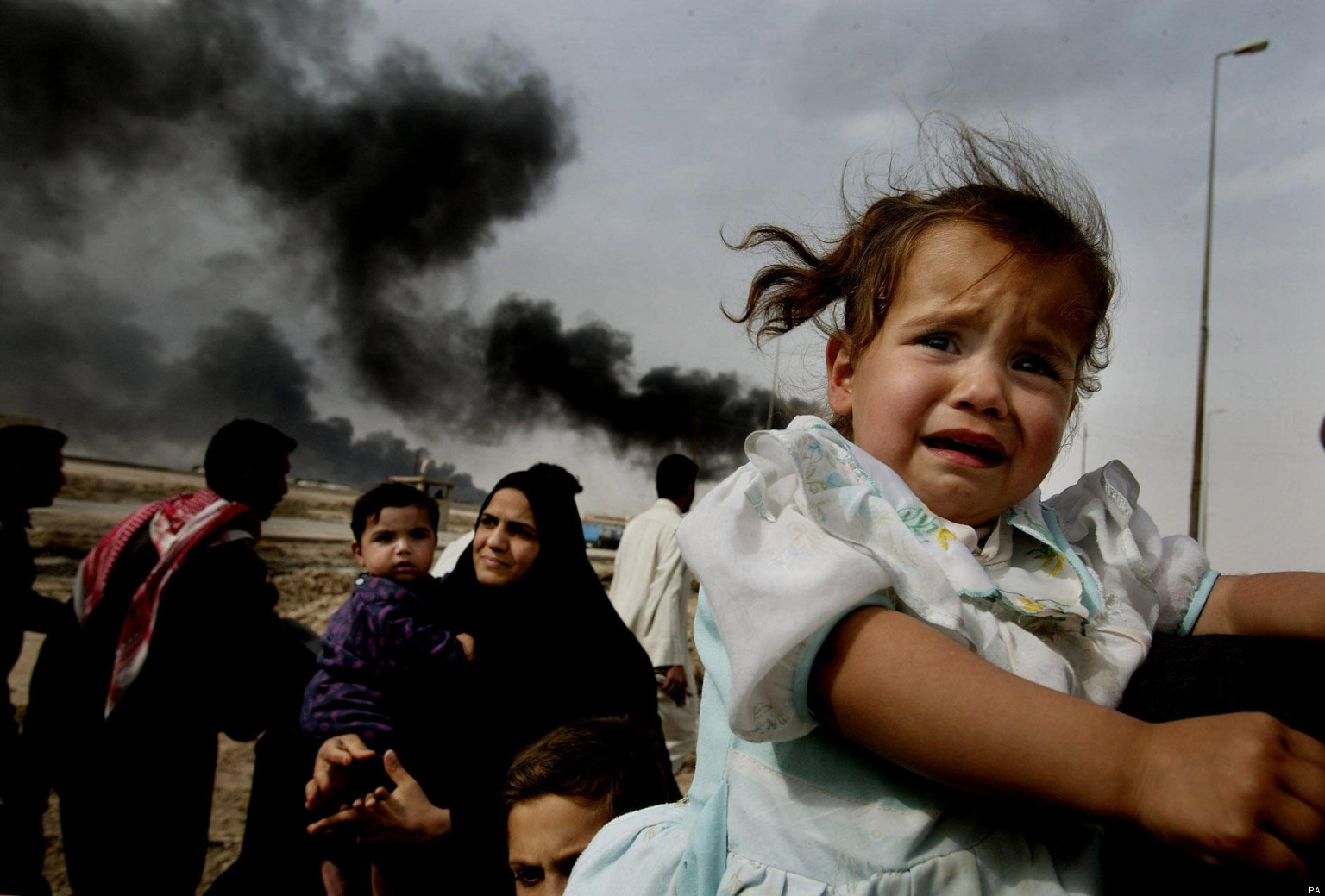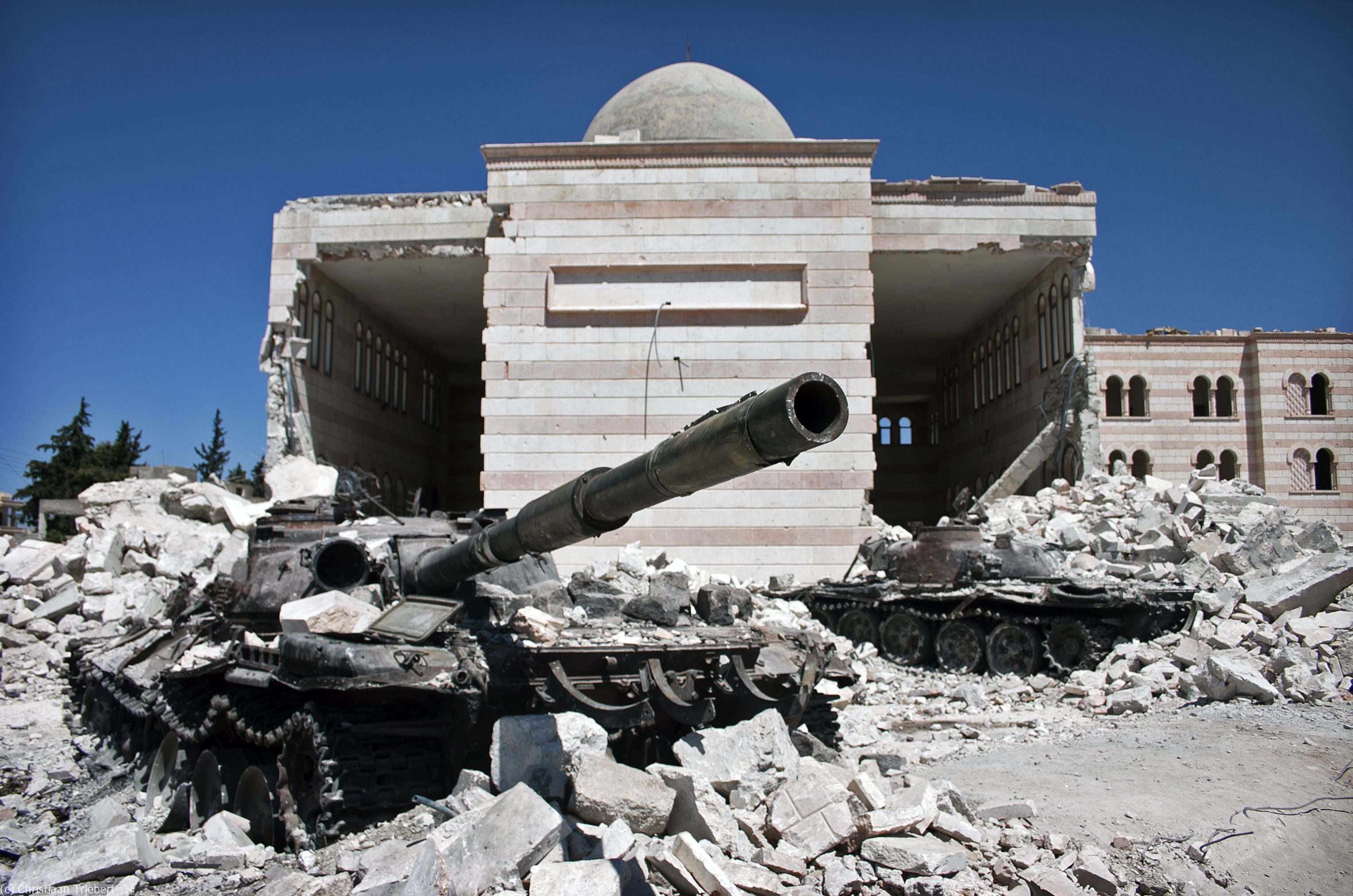By: Brianne Cate

As a country’s gross domestic product increases, so does its capacity to shake off the backlashes of an invasive war on the home front. Aside from experiencing first- or second-hand casualties, some citizens may not even be remotely economically-affected. Thus, in general, it’s easy for the industrialized West to ignore or misinterpret the consequences of conflict fought far away from home.
The United States, with such a huge budget and strong healthcare system, will not feel the effects of a war as strongly as a country like Iraq, especially given the conflict’s invasive nature. With an estimated GDP of 15.68 trillion dollars and healthcare budget of 2.6 trillion, the side effects of war are dampened even further. True, the huge sum of 485 billion dollars was funded directly for Iraqi war efforts, but with 20 percent of the U.S. budget already allocated for defense, can Americans truly say that their standard of living was more than marginally affected? For those on the brunt end of one of America’s most recent conflict, though the horrors of the invasion are being felt to this day. The United States’ proclaimed “War on Terrorism” has had a devastating effect on the Iraqi healthcare system, infrastructure, and most importantly, its people. Without proper plans and funding for rehabilitation, their conditions will continue to deteriorate.
Even disregarding the destruction during the Iraqi War—namely, the killing of approximately 120,000 civilians, the maiming of thousands more, and the destruction of property—the effects of the conflict are staggering. The direct wreckage of lives and infrastructure is just the tip of the iceberg when calculating the full extent of the damage done to the Iraqis. A decade after the U.S. invasion, Iraq is experiencing a serious public health crisis. With respect to infrastructure, 40 percent of the water system is damaged, sabotaged by both fighting factions. Much of the fertile farmland is despoiled. These conditions have lead to the proliferation of disease, malnutrition, and aggressive competition for resources. The trauma of ongoing violence and insecurity has created an environment of social decay, resulting in increased crime, substance abuse, poor school attendance, child abduction, prostitution, and mental ill health. Since the war, 210,000 mothers have not been given immunizations, resulting in stillbirths, underweight babies, and diseases of malnutrition. A recent study has shown that children born in violent areas were approximately 0.8 centimeters shorter than the average before the war. Another study, conducted specifically in Fallujah, Iraq, showed that since 2003, congenital malformations have increased to 15 percent of all births in the city and surrounding region.
A less studied, but just as heartbreaking, effect of the war, is the mental trauma and outbreak of psychiatric disorders since its conclusion. Approximately 10 percent of any population is afflicted with differing psychiatric disorders, so one can only imagine how much greater this must be in a state which bore the brunt of two back-to-back international conflicts (the Gulf War finished only about a decade before the War in Iraq). Numerous statistics are available and preventative measures have been taken in order to stem to the exponential increase in Iraqi War veterans’ mental trauma in the United States. No such data or measures have been taken to protect the Iraqi people. The country’s only long-stay psychiatric ward was looted; its inhabitants fled and have since not returned. Due to the insecure environment of Iraq’s health facilities in general, 75 percent of healthcare professionals have quit, leaving all hospitals severely understaffed. Those that have remained, it can be deduced, will be solely focused on the still-deteriorating physical health of the people. But regardless of whether the facilities even have the capacity to care for the victims of the postwar trauma, mental health disorders are highly stigmatized in Iraq and often publicized negatively. The people that may need the medicine most will often refuse to acknowledge that they need help. America’s Iraq Relief and Reconstruction Fund designates only 4 percent of its budget toward healthcare, and only 1 percent of that budget is allocated to the mental health of the country, making it impossible for conditions to improve.
To paint a picture: the United States invaded Iraq, conducted a war with little regard to the Geneva Convention, and then left the country in its twice-demolished state with no plans for rebuilding and a miniscule amount of relief funding. Coverage of the Iraqi War focuses almost entirely on American soldiers’ deaths, while perhaps throwing in estimated death tolls of the civilian population as an afterthought. In the month of the September of this year alone, already 453 civilians have already been killed. Documentation of the continually deteriorating health system and health of the Iraqi people can only be found in academic journals or on international humanitarian websites. To most Americans, the initial invasion may seem like a distant dream, or perhaps a nightmare; many still refuse to own up to the mistake. America cannot correct the errors of its past, but must now use them as a foundation for future decisions. If the U.S. intervenes in Syria, the same sequence of events could unfold. Lacking a definitive plan for rebuilding infrastructure, facilitating fair and free elections, or even deciding which faction should be given power after the conflict ends, the country could be left in a more ruinous state than it is already in.
The huge presence of refugees already in the region is contributing to its destabilization. In fact, many of the 4 million Iraqi refugees worldwide fled to Syria and are now having to return to their own country or continue seeking asylum elsewhere in the Middle East, along with Syrian refugees. First and foremost, this huge overspill of refugees must be relieved, not expanded upon. If the Obama administration can hammer out a multilateral humanitarian relief plan with U.N., this could mitigate the devastating effects of the civil war at least to the group of people whom require it the most—the civilians. As the anniversary of the declaration of the “War on Terror” approaches, victims on both sides of the atrocity must be remembered, if nothing else. It’s high time that Americans realize that they are not the only ones in the world that are capable of suffering.

